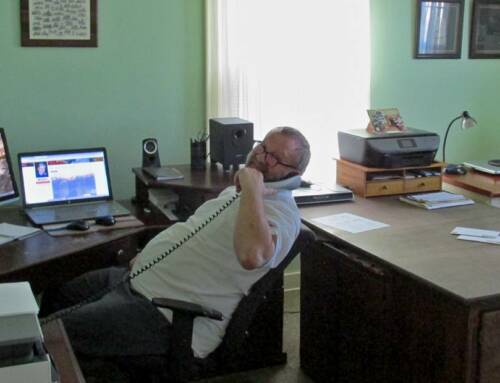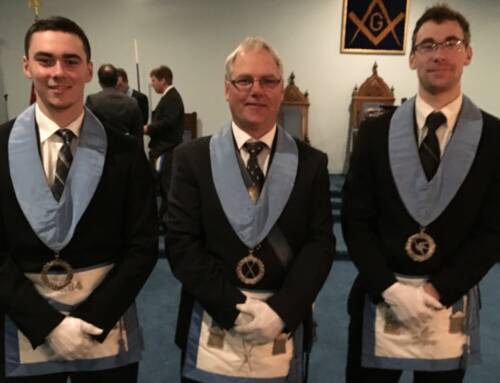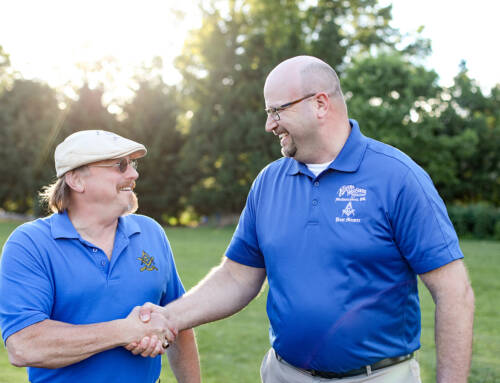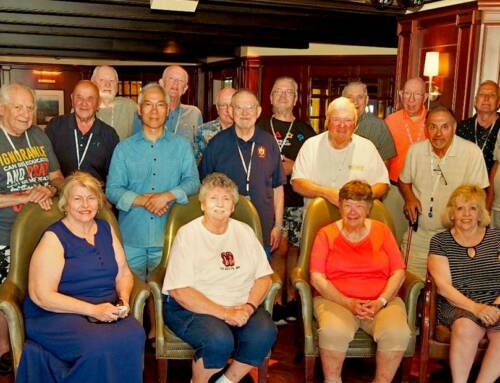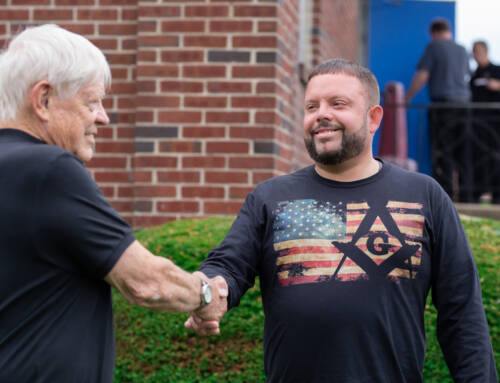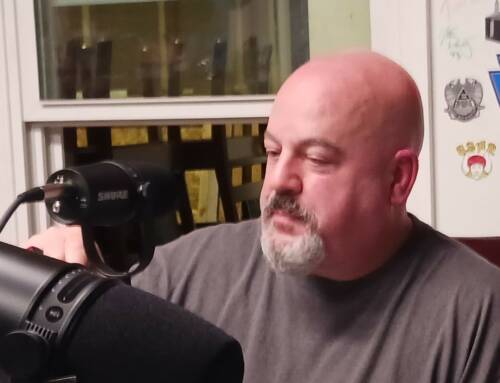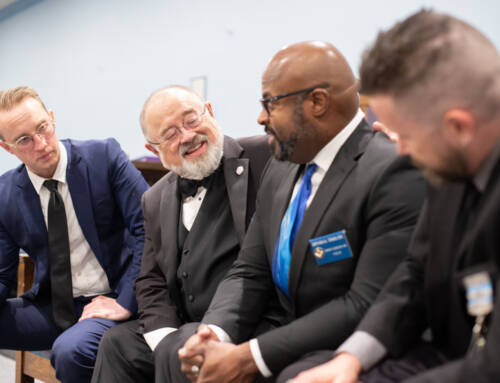Protect Yourself Against Fake Masonic Facebook Pages

Fake Facebook pages, whether impersonating individuals or businesses, are a common issue on the platform, often used for malicious purposes like identity theft or scams.
The Masonic Temple in Philadelphia and Grand Lodge of Pennsylvania social media sites are no exception. There's been a recent uptick in Facebook pages claiming to be the Grand Lodge or the Masonic Temple, as well as attempting to sell official merchandise. Other Grand Lodges are experiencing this issue as well. We only sell products through the physical gift shop or Library and Museum store site, so any posts advertising product sales that don't mention or refer back to these resources are fraudulent. (The Grand Master's Blend bourbon is ONLY available through our partnering distillery, Hidden Still Spirits in Hershey, PA.)
Fake or Real? Here's How to Know
Knowing how to spot and report these scammers is key to protecting yourself and your business. It can also prevent others from gaining a negative perception of the fraternity based on negative impressions from or experiences with fake accounts.
There are several ways to spot a fake Facebook page, including identifying generic or incomplete information. Genuine accounts typically have detailed profiles with personal information, like a phone number and a website, while fake accounts might have no biography at all. Examine the page's content. Does it look professional? Or do only some of the posts look legitimate, mixed in with fake ones that use a different voice? When evaluating pages potentially impersonating Masonic lodges or Grand Lodges, is the content about Freemasonry accurate? When the account is posting, are the posts talking about activities in that state/country? For example, if an account is claiming to be the Grand Lodge of Florida, but its posts don't mention Florida Masons or anything related to Freemasonry in Florida, that would be a little suspicious.
Fake accounts often have few or no friends, no recent posts and minimal activity. Or, they may post frequently with content stolen from other pages and build up large followings of unaware users and bots. Therefore, follower count is not always a reliable marker of authenticity since some fake pages can have a higher follower count than the original account due to bots, especially if the authentic account is inactive or posts infrequently.
It's often the case that fake accounts use a profile photo they've downloaded from another user's account or somewhere else online. It's easy to tell if the photo was "borrowed" by pulling up Google Image Search and dropping the photo into the search bar to find its original source. If the photo is from a fake Facebook account, you should see loads of matches across the internet.
Verified and True
It's important that accounts are verified and are not misrepresenting themselves.
Meta Verified is a paid subscription service offered by Meta (formerly Facebook) that provides an official "verified badge" for users' Facebook and Instagram accounts. This badge helps creators grow their presence, build community and combat fake accounts.
Genuine Facebook profiles and pages may have a blue or grey checkmark, indicating they have been verified by Facebook. When combined with other listed warning signs, the absence of these checkmarks can cause suspicion. (However, since Meta Verified is a newer, paid feature, not all accounts may opt into this service, or may still be on the wait list.)
With the Masonic Temple, look for the blue checkmark next to the page name.

This is the organization's only official presence on Facebook. We're in the process of having the Grand Lodge Facebook page verified as well, so there will be no question about the authenticity of content coming from the official pages. Unfortunately, this process takes time, and the applicant does not have control over the length of the approval process.
To further verify a Facebook page or if something it's posting is real, you can always check official websites, which should have links to a Grand Lodge or other Masonic organization's official social media properties. Look at the top or bottom of the homepage, like the Masonic Temple of Philadelphia, which has Facebook, Instagram, YouTube and a link to the Grand Lodge of Pennsylvania website.

You can also look at the page contact information. If the listed area code doesn't match up with the location (search the area code online if you're not sure), or the email address is using something other than the .org domain that most Grand Lodges and Masonic bodies have, it may be false.
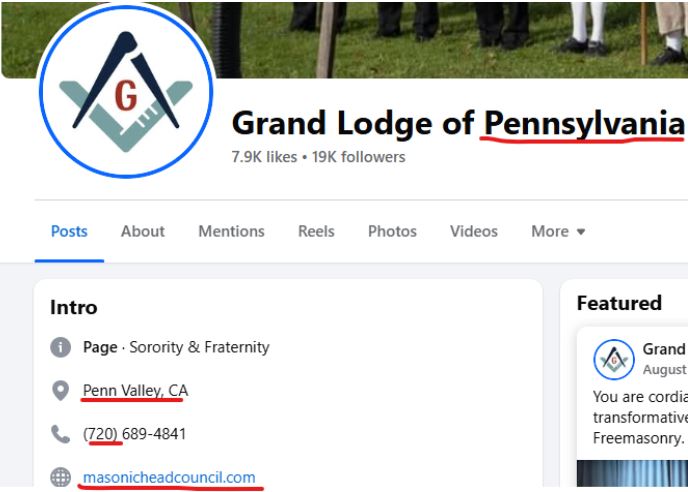
An example of a fake page where the page location and area code don't match up with what it's claiming to be.
For the Masonic Temple and Grand Lodge of Pennsylvania pages, the real accounts have phone numbers that start with a (215) domain and email addresses that end in "pagrandlodge.org" listed.
You Found a Fake … Now What?
If you spot a fake Facebook account or product, you should first and foremost report it to Facebook. The popular social networking site allows users to report fake profiles or pages, even without a Facebook account, according to their website. Unfortunately, this process takes time, and the applicant does not have control over the length of the approval process. Facebook has an inordinate number of fake accounts that defy its terms of use daily, according to several social media resource websites. However, Facebook isn't just letting them be. In the last few months of 2023 alone, Facebook removed 691 million fake accounts from the platform, according to IgniteVisibility, a digital marketing company.
While Facebook may not immediately look into the account, enough people reporting the account should prompt an investigation and will increase the chances of Facebook deleting the profile. "When Facebook receives around 10 – 20 reports about a specific account they will investigate, so it's worth doing," according to McAfee, an online protection company.
Still, many people have complained that Facebook can be slow to react on such reports and sometimes does nothing. Therefore, it's important to do your due diligence to avoid interacting with fake profiles, sending them messages or accepting friend requests. If you're suspicious, just don't engage.
Once you've confirmed a fake account, let your network know so they can be aware and avoid interacting with it. Also, let the organization or business know about the fake account, so they can be aware and take any necessary steps.
Additionally, you may want to subscribe to LifeLock or one of the other personal protection sites to protect yourself against scams and help prevent fraudulent use of your personal information.
In the meantime, please be vigilant about what you're sharing and purchasing. Unfortunately, once a purchase has been made from a fraudulent seller, there is nothing the organization being impersonated can do to recoup the funds.
Some Grand Lodges are considering legal action to put a stop to these Facebook pages, hiring a social media law specialist or another type of lawyer. It's still important to first report fake accounts to Facebook, so they can identify and remove them, and it's important for Grand Lodges to communicate this information to their members.
There are a lot of fake Facebook pages out there. At best, they waste your time. At worst, they try to scam money and personal information from you. With your help, we can expose and eliminate these frauds from the Masonic social media landscape. Share this message. Warn your brethren. Together, we can help prevent this fraud.


